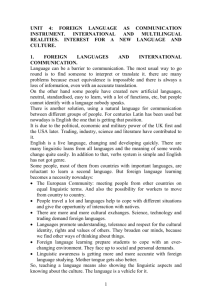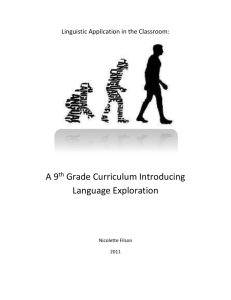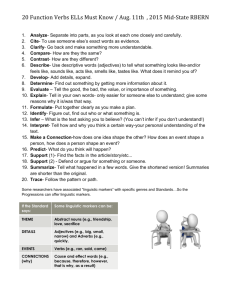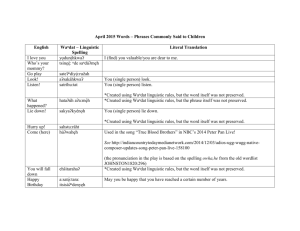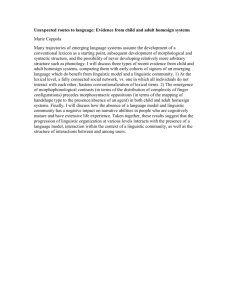abstract here - Columbia Law School
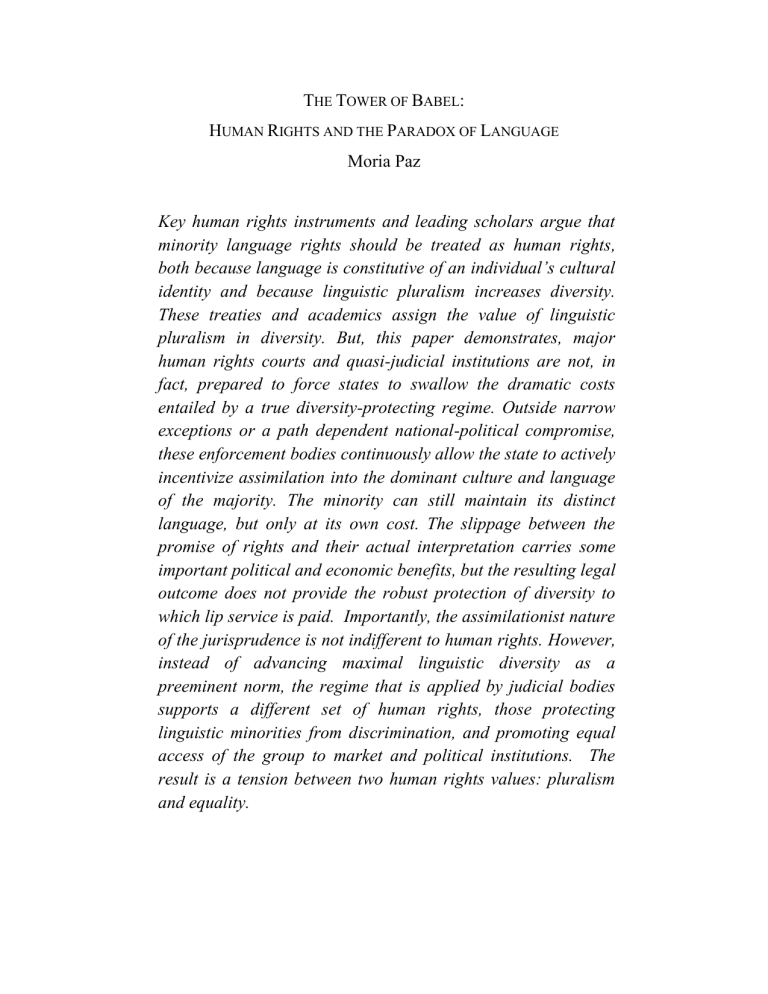
T HE T OWER OF B ABEL :
H UMAN R IGHTS AND THE P ARADOX OF L ANGUAGE
Moria Paz
Key human rights instruments and leading scholars argue that minority language rights should be treated as human rights, both because language is constitutive of an individual’s cultural identity and because linguistic pluralism increases diversity.
These treaties and academics assign the value of linguistic pluralism in diversity. But, this paper demonstrates, major human rights courts and quasi-judicial institutions are not, in fact, prepared to force states to swallow the dramatic costs entailed by a true diversity-protecting regime. Outside narrow exceptions or a path dependent national-political compromise, these enforcement bodies continuously allow the state to actively incentivize assimilation into the dominant culture and language of the majority. The minority can still maintain its distinct language, but only at its own cost. The slippage between the promise of rights and their actual interpretation carries some important political and economic benefits, but the resulting legal outcome does not provide the robust protection of diversity to which lip service is paid. Importantly, the assimilationist nature of the jurisprudence is not indifferent to human rights. However, instead of advancing maximal linguistic diversity as a preeminent norm, the regime that is applied by judicial bodies supports a different set of human rights, those protecting linguistic minorities from discrimination, and promoting equal access of the group to market and political institutions. The result is a tension between two human rights values: pluralism and equality.



